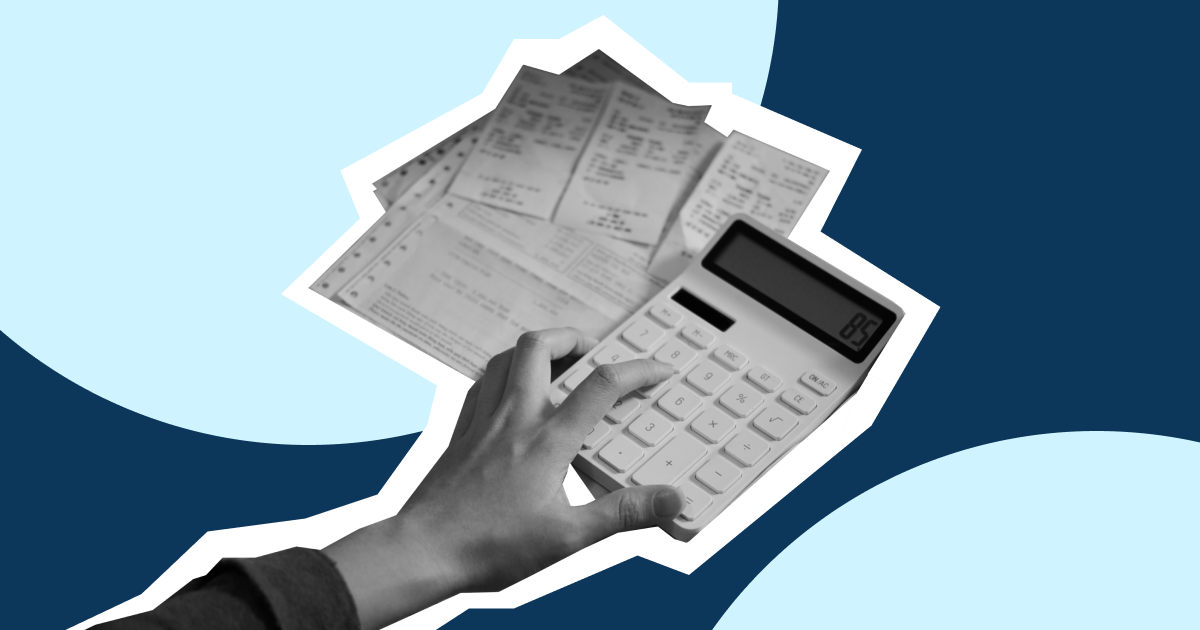Summary
What exactly are business startup costs?
As an entrepreneur, it can be quite exciting, yet daunting at the same time if you are planning to launch a new business. The main reason is the worry of calculating business startup costs, understanding the market, figuring out the consumer mindset, developing products according to the requirements, the profitability in the long-term, securing sufficient funding for the startup, and so on. Business startup costs are quite a crucial part of the planning phase as it directly impacts the investment implications.
In the midst of putting together big ideas, new businesses often tend to neglect the process of meticulous planning and accounting in order to manage the business expenses. Many times, startups tend to rely upon a steady flow of customers in order to take care of operations and expenditure, but fail to anticipate possible downfalls during the act of survival amongst the heavy competition.
There are generally different types of start up costs, depending upon the type of business. For example, an eCommerce store may need a warehouse space while a professional firm may want office setups instead. However, some of the start up costs such as inventory, technology and communication, advertising and marketing, supplies and equipment, and more, are a few of the common business expenses in any company.
Introduction to Deductible and Non-Deductible Costs

All the expenses which are generally required to launch and run a brand new business are referred to as start up costs. These include the cost of setting up your new business and that of running the same. Majority of these costs are deductible while filing taxes, while there are few which are not deductible.
The most common expenses which come under the category of deductible costs are:
- Formation costs - Basic costs required to create your business entity. These include costs like filing fees for partnership (or any other entity type you choose), cost to register a company etc. Many businesses require health inspections, specific licences and permits in order to start operations.
- Market exploration related costs - Costs you incur to understand the market you will operate in, potential customers, right price points to sell your products etc. These include costs related to market research, customer surveys and more such costs.
- Capital expenditure - Costs which are incurred in order to acquire a capital asset such as office space, warehouse, manufacturing units, tech infrastructure, furniture etc.
- Operational costs: Wages, salaries and fees of employees, consultants and others. Office supply costs, utilities, sales and marketing costs etc.
Some common expenses which come under non-deductible costs are:
- Personal expenses - As name suggests, your personal expenses like a private car hire, or expenses incurred for extra travellers (family & friends) on business trip are some of the many personal expenses which are non-deductible.
- Motor vehicle expenses (S-plated, Q-plated and RU-plated cars) -Deduction is not permitted on any motor vehicle expenses incurred on private (S-plated) cars as well as on business (Q-plated and RU-plated) cars registered on or after 1 Apr 1998.
- Fines & penalties - The most common fines and penalties include late fees, parking tickets, safety violation fees etc. These are all expenses which are non-tax-deductible.
- Donations - Donations are generally not incurred for production of income and thus are non-deductible. However, if donations are made to an approved IPC (Institution of a Public Character) or to the Government of Singapore for the benefit of the local community then you can claim tax deduction on the same.
- Certificate of entitlements (COE for motor vehicles) - Non-deductible expense except If your vehicle qualifies for capital allowances. If it does, you can include the cost of COE to the cost of the vehicle and claim capital allowances.
These are just some of the many deductible and non-deductible business expenses. It is not just important for you to calculate them to ensure proper taxation, but you must also budget them correctly. Allow us to help you understand why.
Why is it important to calculate and budget for different types of expenses?
Calculating the different types of expenses gives you a good idea of the costs required in order to launch and fund your business. This involves important aspects such as business registration costs, business insurance costs for your small business, and so on. It also helps to get an estimate of the expenses you will require to run the business operations in the long run.
In order to analyse the requirements of your cash flow so as to know how much revenue is needed to break even, it is important to first understand important expenses that are recurring in nature, such as the cost of goods sold(COGS), payroll, etc. This helps to set aside a sufficient amount of money for a few months to ensure that you are not directly dependent on the revenue of the business from the get-go or the early stages of the startup.
Calculating the various categories of expenses also helps you to determine the cost-efficiency of your business, i.e., which are the areas where you can potentially save more money and reduce expenses. Another great benefit is that an expense outline will guide you on the allocation of product pricing, according to the costs involved. This will in turn directly impact the amount of profit your business might incur from the sale of your products.
This is also important while seeking external funding for your business. Most of the documentation which is required in order to apply for external funding in terms of loans and investors includes copies of all the agreements with clients and key suppliers, along with a detailed projection for at least one year, of the expected costs and income, with an explanation on how you expect to ensure that those numbers match up.
Here’s how to calculate the cost of starting and running a business
Identify and create a list of definite expenses
The first step is to clearly identify a list of all the possible definite types of expenses. The created list needs to include both one-time costs and ongoing costs.
Conduct thorough research on the estimated costs
Try to find the estimated cost of each item on your list as close as possible to the real cost. Ensure that your research includes the comparison between various vendors so as to help in minimising all the expenses without having to compromise on quality. Your costs may include salaries, rent, office supplies, equipment, etc., depending upon the nature of your business.
Add up the expense amounts
Next is to ensure that all of your one-time expenses are added up together. Along with that, figure out how much your ongoing expenses add up to for one single month. Then multiply it by a few more ‘n’ number of months. The number of months you want to multiply depends upon your estimated time needed to start getting revenue or extra funding. The total amount calculated for the one-time costs and ongoing costs will help you identify the initial amount needed for your startup.
Create a cushion expense
Creating a cushion expense for the next six to twelve months is a smart thing to do. This will help to keep your operations in progress continuously, even when it is slightly difficult to estimate the future number of sales right from the beginning.
Tally the final cost
Once you have created the cushion expense, add it to the initial estimate of expenses so that you arrive at a full financial number.
Let’s break down the different types of costs for startups

Although most of the things listed below are quite typical for any business start up costs, the cost of your actual business will entirely depend on factors such as the type of industry and specification of your business. These various types of costs are mainly divided into ongoing expenses and one-time startup expenses.
Research expenses
Before starting a business, thorough research of the consumers and the industry must be carried out. This is one of the primary expenses among the various types of costs. There are business owners who opt to hire external firms for market research so that they can get help during the process of assessment. Those who select this path must ensure to include the expenses of these external expenses within their business plan as well.
Borrowing costs and fund-raising
Starting any business generally requires some amount of capital. Most small business owners acquire financial capital via debt in the form of loans from banks. There may be a requirement to pay an initial application fee, depending upon the financial institution. Ongoing costs such as interest payments and principal are separately paid.
Equipment and supplies
Any business generally requires supplies and equipment, which need to be financed almost immediately. The cost of equipment may vary from small amounts to very large numbers, depending upon the needs of your business and the nature of your industry. Additional finances may be required if the company is providing individual supplies and equipment for each employee.
Licence, permit fees and incorporation
You will need to acquire inspections and authorisations in order to obtain a business permit or licence. This comes under the business registration cost. These authorisations and cost implications will vary depending on the nature of your business and industry-specific permits. Depending upon the state guidelines, the filing of articles of incorporation needs to also be factored in.
Payroll
Regardless of whether your business is not earning much revenue, your employees still need to be paid. These expenses include commissions, bonuses, net pay, paid time off, overtime pay, etc. All of these come under the category of “cost of labour”.
Advertising and Marketing
Advertising and marketing play an important role in start-up costs. A new business is very unlikely to flourish unless they properly promote, advertise and market its brand. Promotion is not limited to local advertisements, magazines and newspapers. It also includes several other methods such as business cards, social media channels, creating videos and ad campaigns, signboards, and so much more. All of these help to attract the right set of clients to the business, while simultaneously building a credible brand.
Insurance
It is essential for a business to have insurance coverage in case of disasters from potential hazards, protection from customer-filed lawsuits, and so on. Factors such as the number of employees, type of industry, nature of business, etc., play an important role in determining the right kind of insurance for every business.
A few common types of business insurance costs include general liability insurance, workers compensation insurance, errors and omissions insurance, commercial property insurance, and so on. These are applicable for small business insurance requirements as well.
Utilities
A business is also responsible for paying utility bills such as internet, phone bill, gas, electric, water, etc., for your office space.
Technology
In this digital world, technology has become a huge part of any business. These include software, information systems, other tools, etc. Startups generally tend to also spend a lot on expensive servers and software packages so that things can run smoothly. Other products such as the computers, phones and other devices also come under technological expenses.
Inventory
An inventory is required in case your business deals with manufacturing, wholesale, retail and distribution of products. Securing a good-sized inventory helps to attract clients and gain revenue in a better manner.
Shipping costs
Businesses which deal with retail and wholesale trading may need to consider shipping costs in their expenses. Shipping costs include postage, packing materials, location of the customer, etc. This is more applicable to service-based industries.
Travel expenses
There are some businesses which require their personnel to travel, while some do not. If you have a business which requires, constant travel of some of your employees to directly meet with your customers, you need to factor in the cost of food, stay, transport, etc., into your start-up business costs. This can be used to gain returns by using things like a travel business card.
Taxes
Depending on the amount of revenue earned via your business, business entity, and deductible expenses, you will be required to pay a certain percentage of business tax.
Website
A presentable and relatable website needs to be at the forefront of any business.
It needs to be user-friendly, and professional in terms of aesthetics, it needs to display all the right kinds of information such as products, services, company information and contact details.
In order for all this to take place, a certain amount of expenditure will be needed.
Due to developing technologies, there are now a lot of websites which offer cost-effective solutions to create great websites.
Office Space
Renting or buying an office space for your business falls under the category of fixed startup costs. The expense for these office spaces will vary and depend upon the number of employees, type of office space, location, city, other amenities, etc. There is no straightforward answer to the question "how much does it cost to rent office space?", there are just too many variables involved. However, it is important to estimate how much does it cost to rent office space in Singapore correctly since it will be one of the bigger amounts that your business will pay frequently.
Professional Consultants
There are several occasions where businesses opt to seek the help of professional experts and consultants externally to help with the operations. For example, some businesses prefer to hire external certified accountants to manage the company taxes, whereas some prefer to hire freelancers for their business to help with content, marketing, promotion, graphic design, and so on.
The cost required to pay these experts act as another additional expense to the startup costs.
How to save on startup costs?

As mentioned earlier, there will always be some unavoidable expenses as a part of any business. However, that does not mean that there are no ways to make smarter choices to reduce start up costs.
Tracking business expenses
Start budgeting and tracking all the expenses of your business from the very first day. Several businesses make the mistake of waiting until a much later time to start calculating all the expenditures, which leads to some amount of loss. Tracking all the costs from the beginning for things like supplies, equipment, furnishing, marketing and advertising, etc., will help you organize all your data, help you stay in control of them and help in cost deductions during tax season.
Business credit card
A business credit card helps to gain a much high credit limit as compared to your traditional personal card. It also helps to keep your professional and personal finances separate from each other. The corporate business cards offered can be used to gain real-time visibility of your company’s expenditure. You can create unlimited cards and assign them to employees along with specific budget limits and purposes. You can control the budget limits at your will, and also use this for easy reimbursement along with automated receipt reminders. A business credit card also helps to build your company’s credit score, and increase the cash flow of your company while also being able to enjoy cashbacks, rewards, loyalty points and other such perks. All of these benefits cumulatively help to save on start up costs in various aspects.
Automation and Outsourcing
The world has developed rapidly over the past couple of years, and so has technology. Thanks to Artificial Intelligence(AI) and other brilliant tools and software, several businesses now prefer to create an automated system for all their backend day-to-day procedures, regardless of whether they are a newly launched company or a well-established organization. Many companies are also turning towards outsourcing a lot of their small tasks to external contractors. They are finding it to be much more cost-efficient to outsource tasks which are bulk in number but minimal in terms of workload.
Cash Flow Management
One of the most common mistakes businesses make is to not have a proper and structured cash flow management system. Many times, clients may fail to pay their dues for your services or products on time. This usually creates a domino effect, where the delay in receiving payment from your clients leads to a delay in payment of business expenses. In order to avoid such repetitive situations, it is wise to have a clear cash flow management system where all your business payments, invoices and policies are organised in a structured manner. This allows having continuous seamless transactions in your business without any errors.
Secure Funds
While securing funds may not necessarily help you in saving startup costs, it will definitely aid you in the form of a financial resource when you are feeling quite overwhelmed with all the costs being incurred by the business.
Invest in an all-in-one finance solution
There are some amazing one-stop finance solutions in the market which provide all the answers to your financial needs. These tools and products help you gain real-time visibility of all expenses, help delegate the purchasing power, and allow easy reimbursement solutions while also allowing you to stay in control of all approvals. This helps to automate several financial procedures, and manage all your employees and suppliers, while still keeping all the payout procedures smooth and simple. Aspire is one such company offering these products and tools which may prove to be useful for your business.
So what is the bottom line?
Planning and creating a budget for any business has always proved to be one of the most stressful and tedious processes. However, at the same time, it is also one of the most important aspects of running a company as it helps to determine the requirement of the overall startup cost.
Bonus read: The State of Startup Spend in Southeast Asia 2022










%201.webp)


.webp)